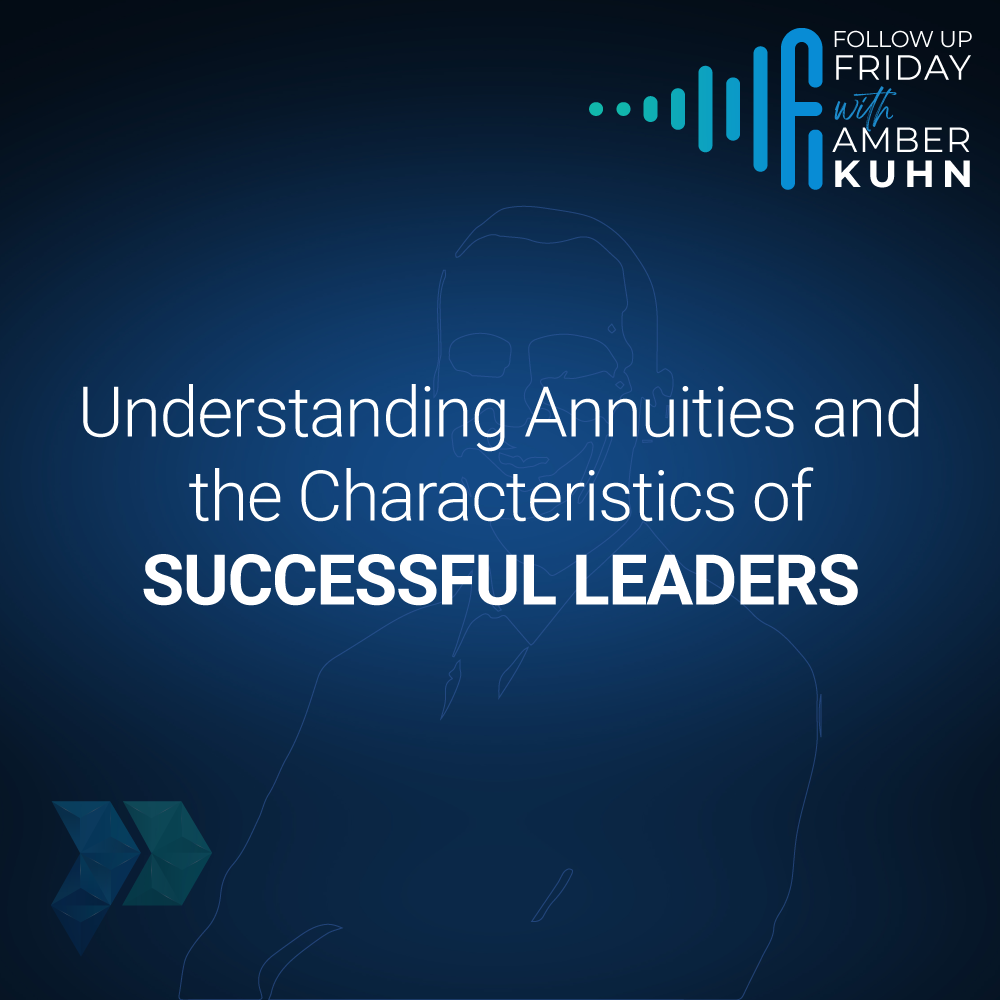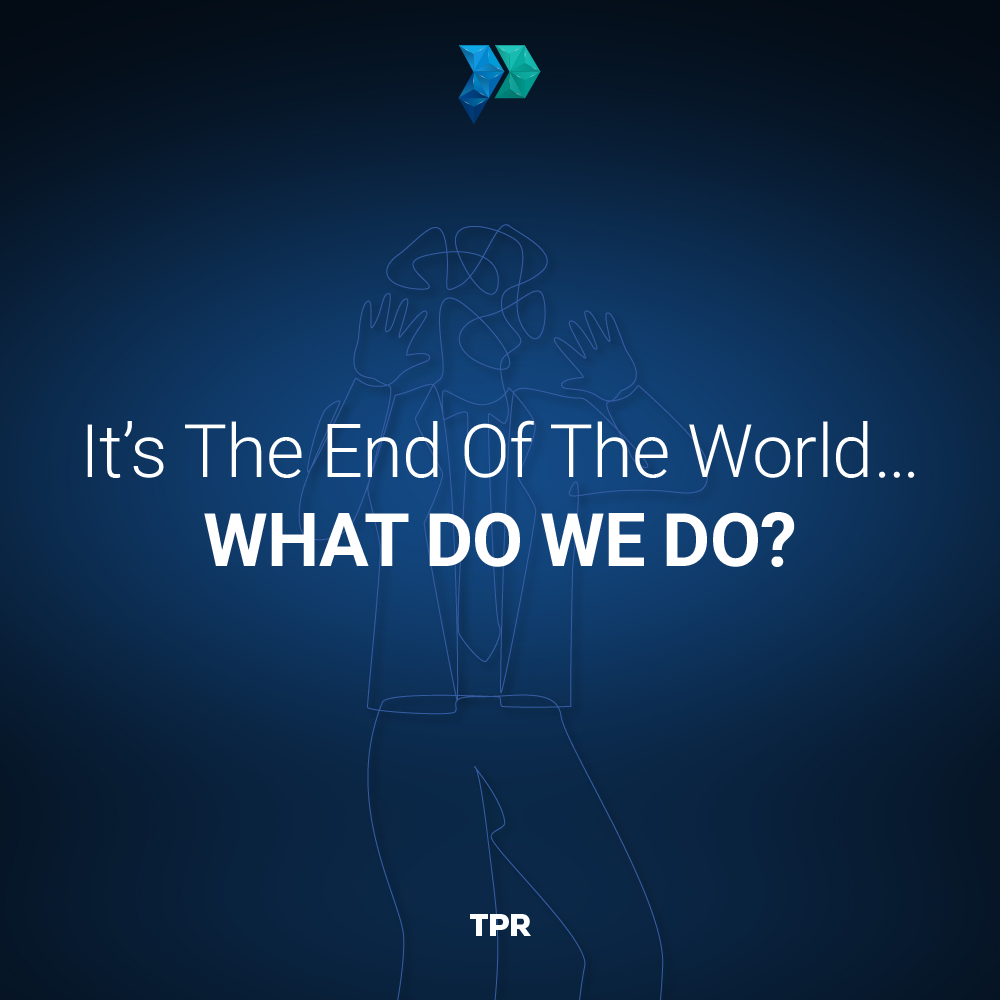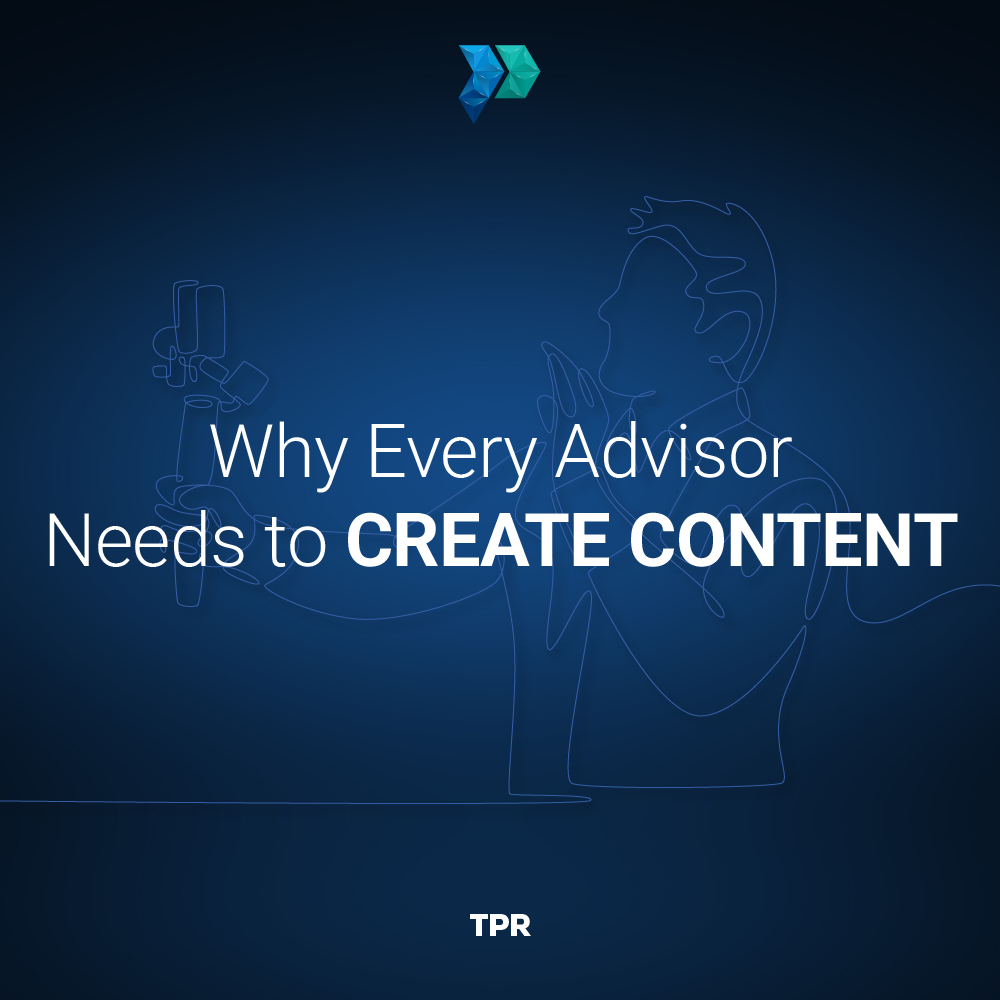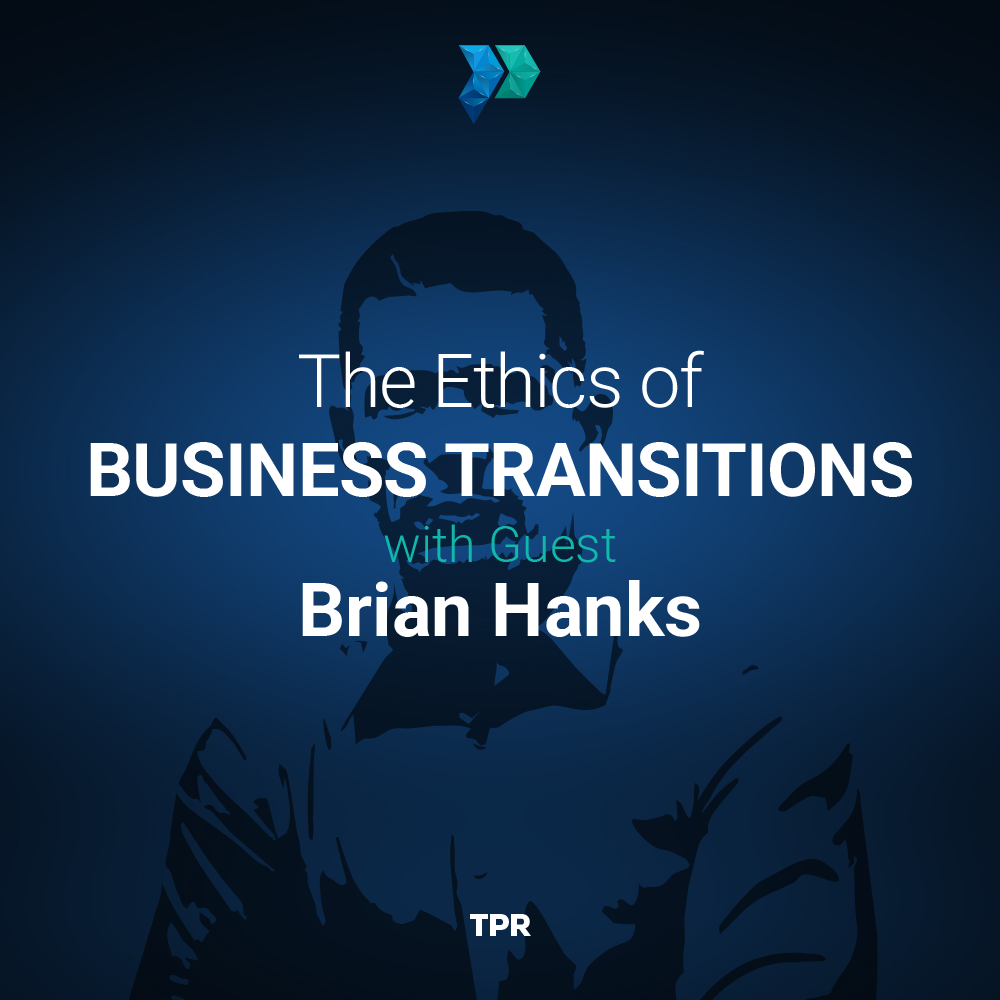What You'll Learn In Today's Episode:
- Proper training is crucial for advisors and agents in the annuity space to understand the foundational details and provide the best solutions for clients.
- Second-guessing worst and best-case scenarios for clients can help advisors make informed recommendations.
- Successful people possess characteristics of optimism and grit, and they work towards their goals with discipline and prioritization.
- Leaders should provide constructive criticism and encourage their team members to come up with solutions to problems.
In this Follow-up Friday episode, host Amber recaps key takeaways from this week’s episodes.
Monday, Matthew Jarvis was joined by Tracy Lownsberry from Annuity Giants, who stressed the importance of mastering annuity fundamentals. Tracy encourages advisors to prioritize client needs over commissions and thoroughly analyze scenarios, demonstrating how expert leadership can enhance both client satisfaction and advisor success.
The episode then explores the universal traits of successful individuals, as discussed by Jamie. She emphasizes the importance of optimism, resilience, and strategic goal-setting for financial advisors. Jamie also highlighted the role of constructive criticism in leadership and offers tips on improving discipline and task prioritization.
Resources In Today's Episode:
Read the Transcript Below:
Amber Kuhn
Hello, TPR Nation. This is Amber Kuhn. Thank you for joining me on today’s Follow up Friday, where I’ll be recapping this week’s episode highlights in action items on Monday, Matt was joined by Tracy Lownsberry from Annuity Giants. Tracy shared that he’s super niche annuity side, and he focuses on making sure that agents and advisors are trained the right way. Tracy pointed out that there are a lot of advisors who are anti annuities, which he said could come from having a bad experience. Also that 95, same with 95% of the people selling them. So Tracy is working with consumers and advisors in the space, which stems from him realizing that there are so many foundational details that are missed that advisors and agents just don’t understand. So he started a community and a training program, and he said that it’s addicting for him to be able to sit down with someone and watch them really start to understand some examples that he shared where people have this epiphany, are related carriers and anything related to performance, he recommended starting to second guess the worst and best case scenarios for your client. He set the expectations that advisors and agents have are clouded because they’re trying to push sales through with both Matt and Tracy saying that there’s a lot of bad products out there. It’s important to understand how they work, and you need to be aware of the options that are on the table. As far as adding this as a part of your toolbox, Tracy said he typically sees advisors who will partner with someone or he said you can charge a flat fee and to make sure that you’re talking with your BD or following through with compliance. Matt and Tracy brought up that it’s important to find the best solution for your client. You can’t just not make a recommendation for someone simply because they get a commission, and that commission doesn’t make you a bad person. Someone is going to do the right or the wrong thing either way, and that isn’t dependent on how they get paid. Tracy said it’s important to set the right expectations with any product, and that ignorance is an offense. And he believes education is important to understand all the pros and cons and tools available and ultimately provide options to a client. Tracy said when you get to the point where you want to have the annuities conversation, or that your clients want to he recommends seeing the guarantees, and that if the contractual guarantees are far from someone’s expectation, then that’s a problem, and you really need to start asking questions. If that performance element is the driving force behind the product, then he said you should run let’s get into action items. Tracy recommended two books, Mindset by Dr Carol Dweck and Positive Words, Powerful Results by Hal Urban, which we have linked in Monday’s show notes. And to learn more about Tracy, you can connect with him on LinkedIn or visit him at the annuitygiants.com where anyone can come and learn. On Thursday, Jamie was talking about rising above challenges and the difference between those who are successful versus those who think they can wish themselves into success. This conversation grew from this thought that people who are successful are smarter, faster or better than others, but Jamie said there are two characteristics in people who are successful versus those who dream about it, and that’s optimism and grit. And with being optimistic, it’s about believing in the possibility of things. But that belief isn’t enough again, because you can’t just wish something into happening. You need to have a plan and work towards achieving your goals. Jamie talked about how this applies with employees and hiring as well. For the most part, people aren’t rock stars straight out of the gate. They need to be trained, and you need to believe that your team can succeed, and you need to show them that it’s possible to achieve more. This doesn’t mean you need to be catering to your team members with all their needs. Their needs and wants, but she believes it’s important to have radical and constructive criticism. Jamie said when you look at her organization, she pointed out that you can be both optimistic and critical, but that a lot of leaders have really struggled with this. She said a leader who’s there to guide others needs to point out when someone gets things wrong, even for herself, she accepts her own mistakes as a natural part of her dame. She believes that problems are meant to be solved and not saddened, and she applies this with her team, so they always know to come to her with a solution to a problem first, even if Jamie may not end up agreeing with it. Jamie said too many leaders are concerned about hurting their employees feelings and that they aren’t responsible for giving feedback that then creates someone who isn’t growing or learning. Your employees don’t need you to be their friend. They need you to be the leader of the organization. This doesn’t come naturally to everyone. It’s something that you need to enter way into if it doesn’t Now, the other part of this is the grit and the discipline. Jamie shared a quote from Tony Robbins that people are praised in public for what they’ve practiced for hours in private, you have to prioritize the things that are going to prepare you for that you want. And this was Jamie’s big question for you our listeners, what are you doing when you wake up and are you reacting instead of being proactive to set yourself up for success? There will be little fires to put out, but Jamie said you need to find the space to handle that versus letting that be the start of your day, you can’t spend your day playing office, which is just pretending to work, where you’re spending so much time on any one task. When you catch yourself doing that, you need to stop, walk away, and then come back to focus on the things you need to get done. So when you think about discipline, you need to think about what it is you want. What are you willing to sacrifice to get there, and what are the steps that you’re going to take? Jamie wrapped up by showing that success looks so easy and tangible today that you forget about the sacrifice that it takes to get there. That wraps up this week’s recaps. TPR Nation, if you’re looking for more resources, or if you have a question, be sure to email us at lifestyle@theperfectria.com thank you for joining me. Please share this or any of our episodes with another advisor or team member who you think are better for listening. And be sure to subscribe to The Perfect RIA Podcast so you don’t miss an episode. Until next time. Happy Planning!








